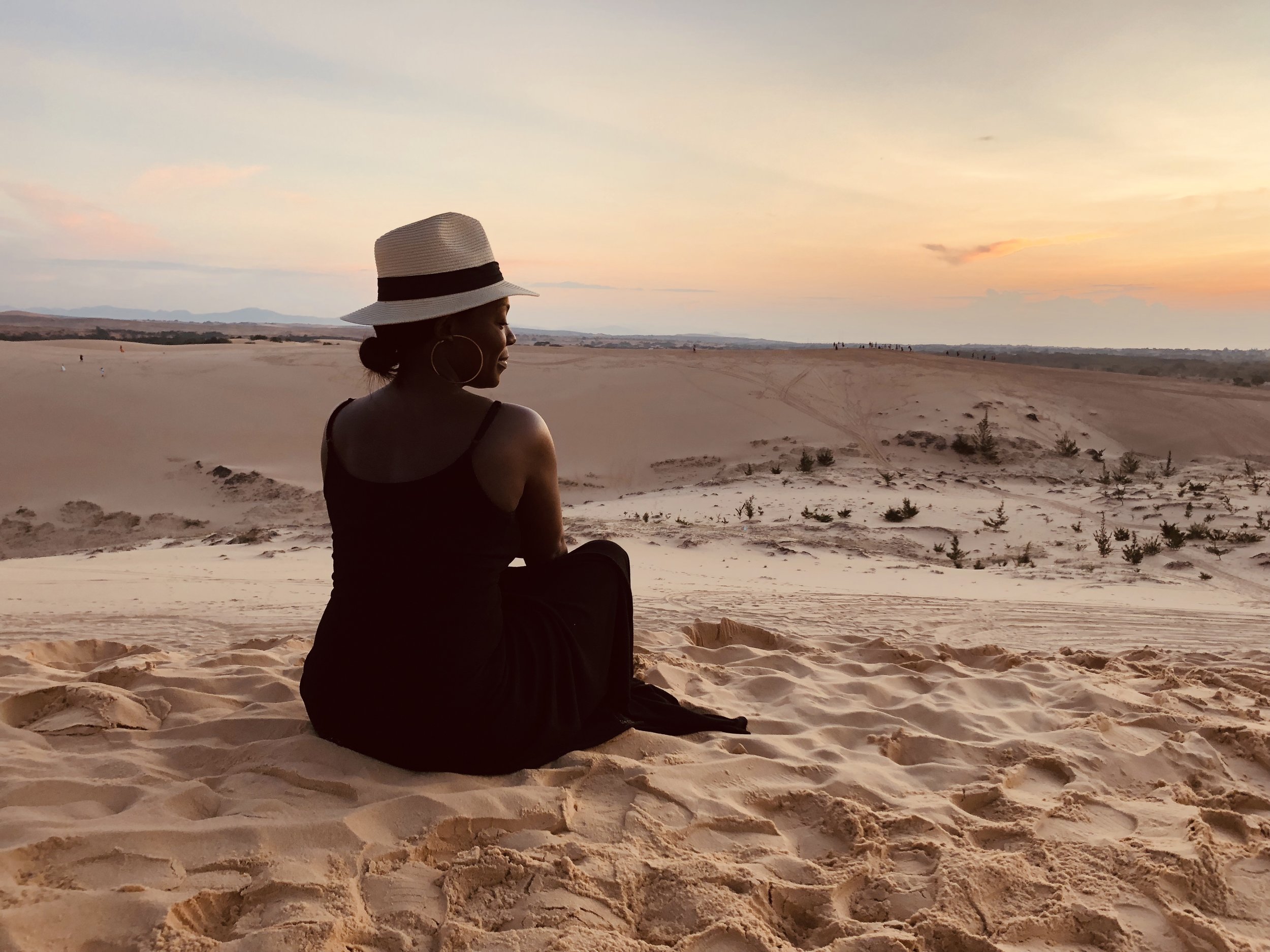
Aspiring Mind Blog
Active Listening Skills for Parents
“It is the province of knowledge to speak, and it is the privilege of wisdom to listen.” Parents, in this day and age, time moves swiftly. Not only you but also your children can be pulled in several different directions and sometimes with the hustle and bustle of the day, it can be challenging to create time to engage in authentic, meaningful conversation with your child. While that may be the case, spending uninterrupted time with them is integral to their healthy growth and development and academic success.
Communication is a two-way exchange, and oftentimes, we as adults tend to dominate the speaker role. The thing is, kids have a lot to say; however, they often need a safe, nurturing space to share what they think and how they feel and the right person to listen. Incorporating active listening skills into your conversation demonstrates to your child that you are serious about improving the quality of your communication and connection.
Here are 8 actionable skills to help you practice and improve your active listening skills:
1. Validation-Acknowledge the individual’s problems, issues, and feelings. Listen with empathy and respond in an interested manner.
2. “I” messages- By utilizing the “I” in statements, you focus on the issue and not the person. I-messages let others know what you feel. Here’s the formula for I-messages: I feel (emotion word) when/because (explanation).
3. Emotion labeling- Helping someone label their feelings helps a person see things more objectively.
4. Restating- To demonstrate that you are listening, repeat back to the other person what you heard him or her say and paraphrase your statement in your own words-for example,” If I hear you correctly…”
5. Minimal encouragers-To demonstrate that you are listening and to keep a consistent flow to the conversation, use short phrases such as, “I understand,” “Oh?” and “Then?”
6. Silence- Use comfortable silence to temper the conversation. This also provides both parties time to respond and think. While silence can seem uncomfortable, it can be a powerful tool when communicating.
7. Redirecting- If someone is showing signs of being aggressive, angry, or frustrated, shift the discussion to a different topic.
8. Body language- When communicating, it’s imperative that your nonverbal cues are congruent with your words. Monitor your facial expressions, nod and smile, have an open posture (no closed arms), and lean in when the other person speaks to demonstrate interest.
As Winston Churchill stated, “Courage is what is takes to stand up and speak; courage is also what it takes to sit down and listen.” Parents, think back to how it felt to be heard, genuinely heard, or not. Now, ask yourself, which experience would you rather pass on to your children-the feeling of being taken seriously, understood, and supported, or…NOT!
Have the courage to listen, attentively and actively to them, for there’s no time like the present to improve and enhance the relationship between you and your child.
Kindall C. Tyson, M.Ed., LPC, NCC
Therapist | Professional School Counselor | Educator Wellness Coach
Word of the Year: Mindfulness
Thich Nhat Hanh posited that, “The present moment is the only time over which we have dominion,” and in today’s world, distractions, internal and external, abound that make it difficult for people to live presently, wholeheartedly accept themselves, and live life more fully. Mindfulness, or “the act of consciously focusing your mind in the present moment without judgment and without attachment to the moment” (Linehan, 2015) helps us become more aware of what is going on for us internally and externally and could have widespread application in multiple settings.
“Mindfulness practices can help us to increase our ability to regulate emotions, decrease stress, anxiety and depression. It can also help us to focus our attention, as well as to observe our thoughts and feelings without judgment.” In a school setting, this practice could prove to be invaluable, for the aforementioned are skills necessary to fully participate in the learning process, acquire knowledge and information, take risks, and build relationships.
To clear up any misconceptions, mindfulness:
· Is not about fixing you (you’re not broken)
· Is not about stopping your thoughts
· Does not belong to a religion, and
· Is not an escape from reality
Mindfulness, however, does mean maintaining a “moment-by-moment awareness of our thoughts, feelings, bodily sensations, and surrounding environment.” The important factor about practicing mindfulness is to tune our thoughts into what we're sensing in the present moment rather than rehashing the past or imagining the future. Therefore, for those struggling with toxic stress, anxiety, depression, burnout, and procrastination, learning about and implementing mindful skills into your life can be quite beneficial.
Just think about it. When you’re experiencing anxious symptoms about impending assessments, traveling abroad, meeting new people, moving to a new school, completing mounds of homework, starting a new job, dealing with family stressors, or having tough conversations with loved ones/co-workers, being more mindful can turn once stress- inducing experiences into more tolerable and manageable events. The key to experiencing success with mindfulness is to practice being mindful as often as possible in the absence of stressors. Being mindful is not something you do once and poof, you’re an expert, but rather being mindful are skills you practice routinely, just like brushing your teeth or practicing your musical instrument.
Research states that incorporating mindfulness practices into your daily routine has numerous benefits, such as reduced rumination, stress reduction, boosts to working memory, improved focus, less emotional reactivity, more cognitive flexibility, and increased relationship satisfaction, etc.
Furthermore, according to various studies, scholastic benefits of mindfulness include:
· Increased focus, attention, self-control, classroom participation, compassion
· Improved academic performance, conflict resolution, overall well-being
· Decreased levels of stress, depression, anxiety, disruptive behavior.
The following are some simple suggestions to begin to incorporate mindful practices into your classroom and school community:
· Practicing gratitude
· Journaling
· Mindful breathing exercises
· Guided meditation exercises
· Positive affirmations
· Yoga
So, knowing this, think back to a recent situation that caused you some stress or symptoms of anxiety. I wonder if you were aware of the strategies and benefits of mindfulness then could that situation have turned out differently. What could you have done in the moment to mitigate some of the negative symptoms of your stressors? Lastly, what would you be willing to incorporate into your life, now, to help deal with things that are on the horizon?
What’s great about being mindful is that the benefits are transferable to other areas of life, not simply academic life. Moreover, being more mindful could be the key to you experiencing life with more happiness, awareness, fulfillment, and gratitude.
I’d impress upon you to remember that the life you want can be achieved one mindful moment at a time. In the poignant words of Tara Brach, “There is something wonderfully bold and liberating about saying yes to our entire imperfect and messy life.” Imagine what life could be like if each day you said yes to being perfectly imperfect; if you realized that your power lies within non-judgmentally accepting your imperfections; if you chose to mindfully embrace the present and allow it to prepare you for your future. Today is all that you are granted. Be present. Be grateful. Be unapologetically you.
Kindall Tyson, M.Ed., LPC, NCC
Therapist | Professional School Counselor | Educator Wellness Coach
References
Davis, D., Hayes, J. (2012). What are the benefits of mindfulness. CE Corner, Vol. 43, No. 7. American Psychological Association. Retrieved from: https://www.apa.org/monitor/2012/07-08/ce-corner
Center for Change. (2019). Why be mindful. Retrieved from:
https://centerforchange.com/why-be-mindful/
Gerszberg, C. (2019). Bringing mindfulness into schools. Mindful Magazine. Retrieved from: https://www.mindful.org/mindfulness-in-education/
Greater Good Magazine. (2019). What is Mindfulness. Retrieved from: https://greatergood.berkeley.edu/topic/mindfulness/definition
Self-Care and the Solo Traveler
I've always been tethered to this incessant curiosity about the lives lead by others in foreign sectors of the world, in the most beautiful places in the world, in the most peace-inducing countries and communities of the world. A. Gide melodiously posited that people cannot discover new oceans unless they muster the courage to lose sight of the shore. Travel is the tool with which you view the world's different shores through others' eyes.
There's so much to think about when traveling alone, and as a woman traveling by herself, there are even more hurdles to jump and fears to assuage. During my recent travels, I curated a list of self-care strategies and must-do's for those intrepid souls who venture to see the world on their own.
1. Plan ahead and create an itinerary for your stay. For planners like myself, this was imperative. I found it beneficial to have a semi-structured schedule detailing my excursions, shopping trips, and solo dinner dates. I promised myself that I would not remain confined to my comfortable hotel room, but that I would play sleuth to all that the cities had to offer. If you aren't much of a planner, the laid back approach would work just as well. But what's the point of visiting such culturally rich places if you have no plan to enjoy it?
2. Create a budget and try to stick to it. Budgeting is critical when visiting a foreign place; it allows you to keep track of your spending and not overspend. Making a budget, I think, also helps keep YOU in check. Try and spend the money on making memories during your stay instead of spending on frivolous items that won't foster a connection with your destination. Also, I realized that if I did not overspend while on vacation, I did not worry as much about money when I returned back to my reality at home.
3. Keep your personal safety as a top priority. Be aware of your surroundings. Just to add an additional layer of protection, I brought mace, and I made sure to have a tour guide that I felt safe with. Furthermore, keeping in contact with my family was imperative. Lastly, it was key to keep my external charger with me just in case my battery drained or my phone died. Making sure to have the number of your hotel is important as well. While traveling solo is fun, it’s key to ensure that you’re being practical and making smart decisions.
4. Practice gratitude daily and make time to reflect. Each day, I wrote in my gratitude journal on my phone and read my bible. This trip was a luxury some cannot afford; therefore, I chose to relish in the moment that I had to reconnect with myself, learn more about myself, and meditate on how blessed I was. Identifying what you're grateful for opens your awareness to more things to be grateful for. What you put into the universe, it sends back to you.
5. Engage in physical activity and eat clean. This is key. On vacation, it's easy to indulge in the delicacies that hotels offer, but being on vacation is a perfect opportunity to continue your routine of being physically active and eating well and clean. There tends to be a lot of walking, and this is a good thing. I walked a ton in Bali, but I also made it a part of my travel plan to wake up and work out. I also chose to eat healthier while on vacation because I did not want to feel guilty about falling off the "wagon" when I returned to Beijing. I chose to be disciplined. If your physical health is important to you, you don’t take a day off; you identify the lifestyle adjustments needed, and you remain consistent, even while on vacation.
6. Try something new. This is pretty much a built-in feature of traveling. Being in a foreign land is the perfect opportunity to be more adventurous and seek out new things. The main thing I wanted to do in Bali was try the swing in Ubud. It was terrifying at first, but I felt great that I had been brave enough to do it. It's making memories at it's finest. I made a deal with myself to take as many meaningful photos as possible for those times of distress and intense emotion when I needed to remember the fun I'd experienced in days past. Think about the fun you’d like to have, make a plan of action, and get to it!
7. RELAX! Unless your intention is to partake in an activity each day of your vacation, take some time to relax, read, and reflect. Sit by the pool, get a massage, take a walk along the beach (provided you're staying near one), or simply sit somewhere comfortable and journal about your experience. Traveling offers you the perfect, unencumbered opportunity to recharge. I mean, you're taking the vacation for a reason, right? Allow this quiet time to energize you and give yourself space and time to just be!
Some believe that putting yourself first is selfish. I say that putting yourself first is a necessity. You cannot pour from an empty cup, and making yourself a priority-taking care of your needs-makes you better and more equipped to help the loved ones in your life. You are your best investment. Invest wisely. Cheers to self-care.
Kindall Tyson, M.Ed., LPC, NCC
Therapist | Professional School Counselor | Educator Wellness Coach




